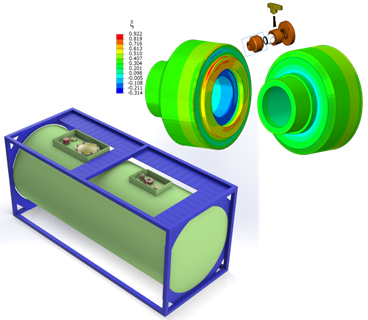Researchers at the Skoltech Center for Design, Manufacturing and Materials and their colleagues have developed and experimentally verified the model of a thermoplastic composite material chaotically reinforced by short glass fibers.

Image Credit: Skoltech
The effectiveness and applicability of this model was demonstrated on strength calculations of promising composite valves and safety devices for portable tanks for road, rail and maritime transportation of chemical substances. The results were published in International Journal of Pressure Vessels and Piping.
One of the most significant scientific and engineering problems in the design of promising structures is the lack of verified mathematical models describing the behavior of polymer composite materials in complex products. The Skoltech team, together with scientists from the Mechanics and Mathematics Department of Lomonosov Moscow State University, was able to build and verify just such a model.
“The developed model makes it possible to significantly reduce the conservatism of strength calculations in the design and customization of structures, which means to minimize subsequent manufacturing costs, while fulfilling the necessary safety and quality requirements,” assistant professor Ivan Sergeichev says.
The obtained results indicate that mathematical models of the behavior of composite materials are applicable to “virtual tests” of structures instead of expensive full-scale tests.
“Our research group is introducing the modeling methods into the procedures for confirming compliance and certification of highly responsible structures within the framework of the project Experimental and digital certification platform of the Technet roadmap of National Technological Initiative program with the support of the Russian Maritime Register of Shipping,” Sergeichev notes.